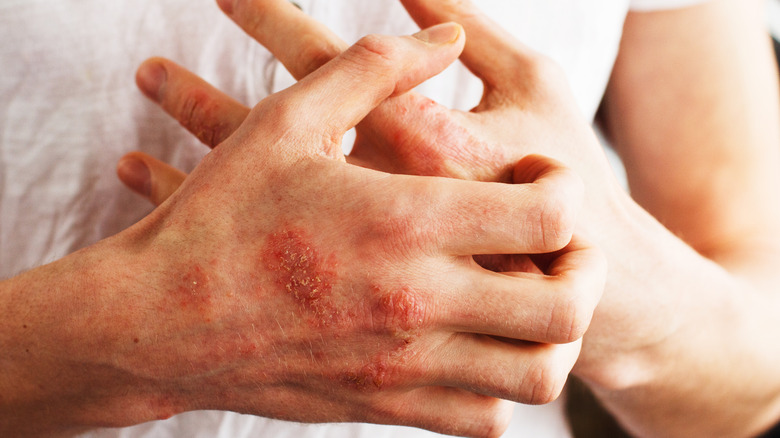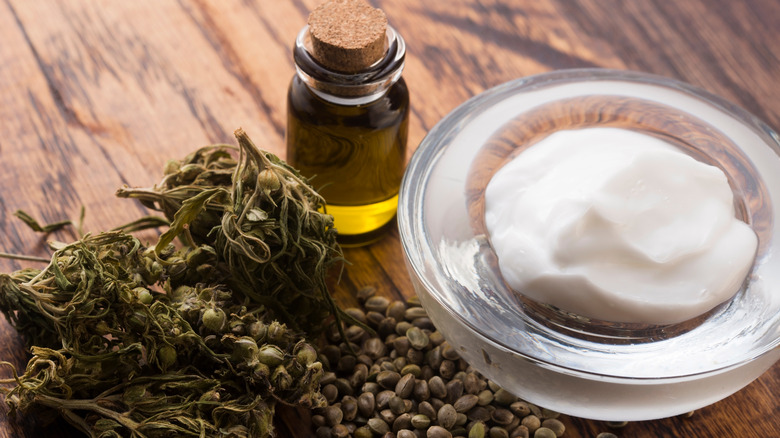Can CBD Help Ease Symptoms Of Plaque Psoriasis?
It's an unsettling and lonely experience when a health issue arises as you try to find help to deal with it. When help and treatments don't provide relief, it can become frustrating and downright frightening. Sometimes there's a treatment option out there that is off the radar that may work.
Plaque psoriasis is an example of an irritating issue that can be itchy and painful until a suitable treatment is applied (via WebMD). Psoriasis is a skin condition and autoimmune disease that causes red raised patches on the skin with white build-up on top. Johns Hopkins Medicine defines an autoimmune disease as one where your body's natural protection can't tell the difference between normal cells and foreign ones and attacks itself. The patches in psoriasis result from this, as the new skin cells grow faster than normal and build up on the skin (WebMD).
While plaque psoriasis seems to be hereditary, it also needs a trigger of some sort to bring on the attack by the immune system. Common triggers include medicines, smoking, drinking, stress, sunburn, or other skin injuries. Psoriasis is related to inflammation, and it is common to have other inflammatory issues when psoriasis is present. While psoriasis can't be cured, it can be treated by oral and topical medications that reduce inflammation or slow down the immune system. While these treatments may help, sometimes they don't. So is there another way to treat psoriasis?
CBD reduces inflammation
Due to its many potential health benefits, CBD use has been on the rise (per 2022 study). Cannabidiol or CBD, is the second most ingredient in cannabis, but it doesn't cause the "high" associated with marijuana (via Harvard Health Publishing). CBD is currently legal and can be obtained without a prescription. It can be administered orally and topically and is used to help manage anxiety, chronic pain, insomnia, and addiction.
CBD works by interacting with the endocannabinoid system in the body, explains Medical News Today. This system has two types of cannabinoid receptors present throughout the body. CB1 receptors are primarily in the brain and affect emotions, mood, thinking, and memories. CB2 receptors are common in the immune system and affect inflammation and pain. A 2019 study found that CBD demonstrated antioxidant and anti-inflammatory effects. These could possibly be applied to the inflammation aspect of conditions, such as plaque psoriasis either topically or orally.
Similarly, according to a 2020 study, CBD's anxiety-reducing effects could help reduce instances or severity of flare-ups triggered by stress and anxiety. Another study in 2020 found that CBD can also help to suppress the immune system. As psoriasis is an autoimmune disease, this should also help reduce symptoms and follow the same strategy as some psoriasis medications. The properties of CBD seem to lend themselves to managing autoimmune and inflammatory issues, like plaque psoriasis. If standard medications aren't helping, reach out to your healthcare physician about other options, like CBD, for relief.


